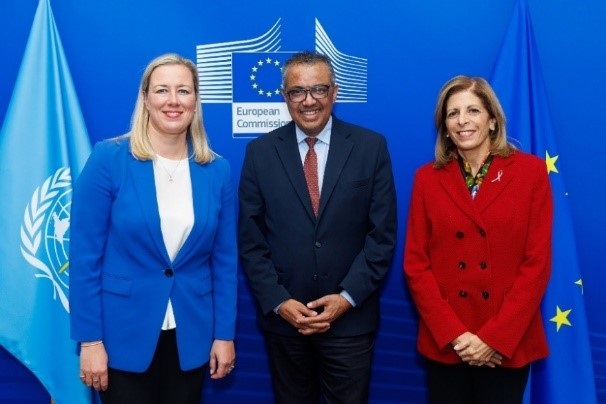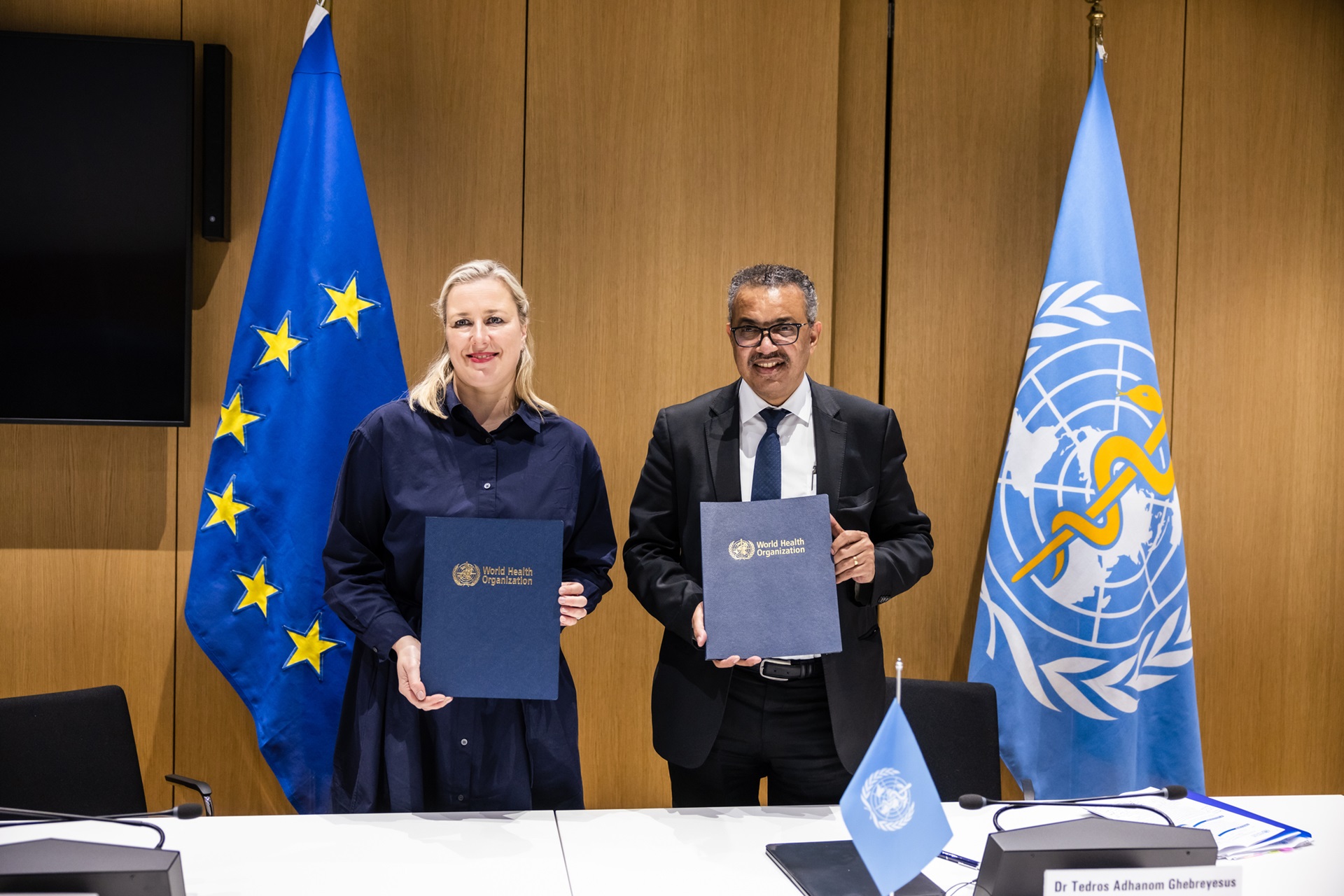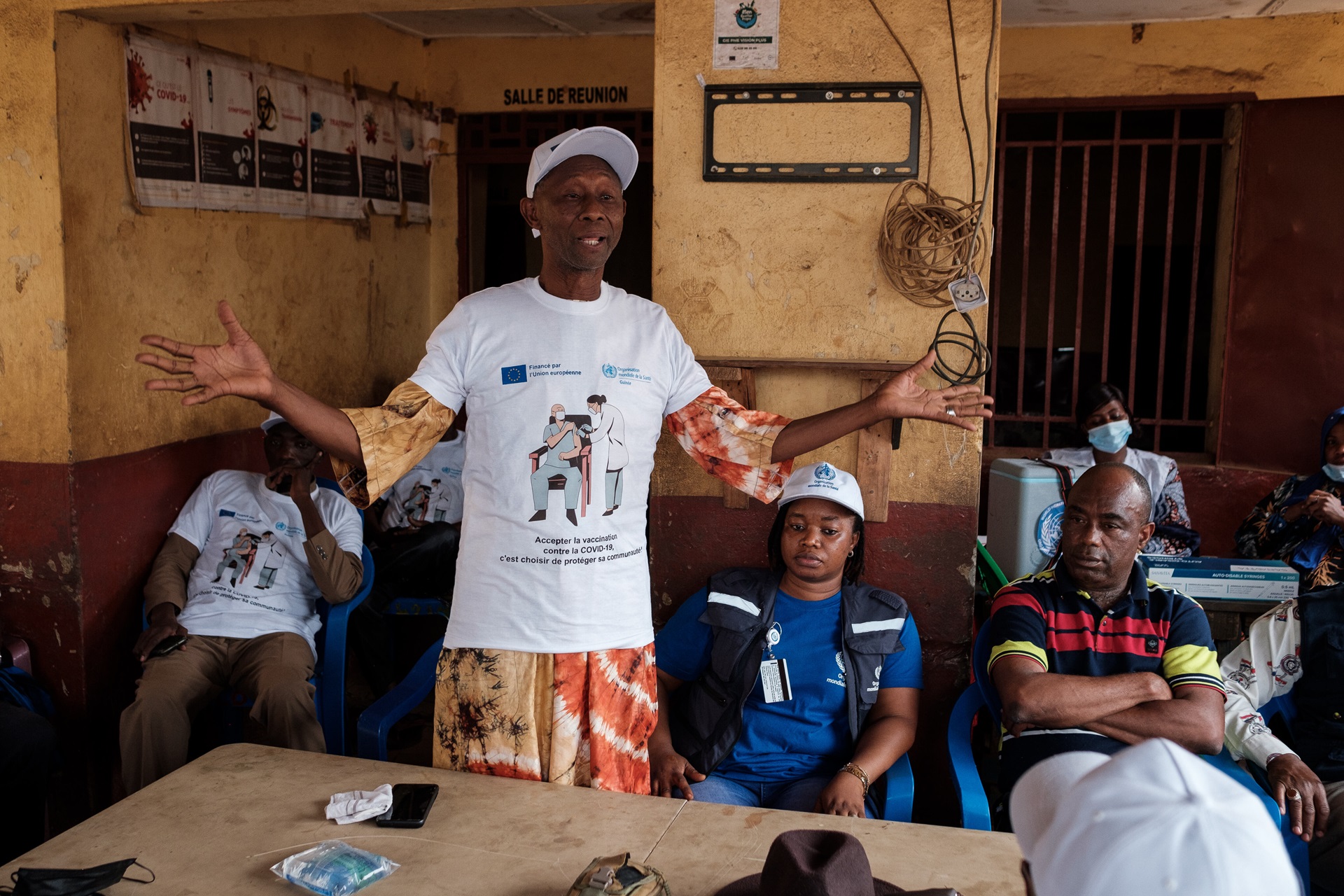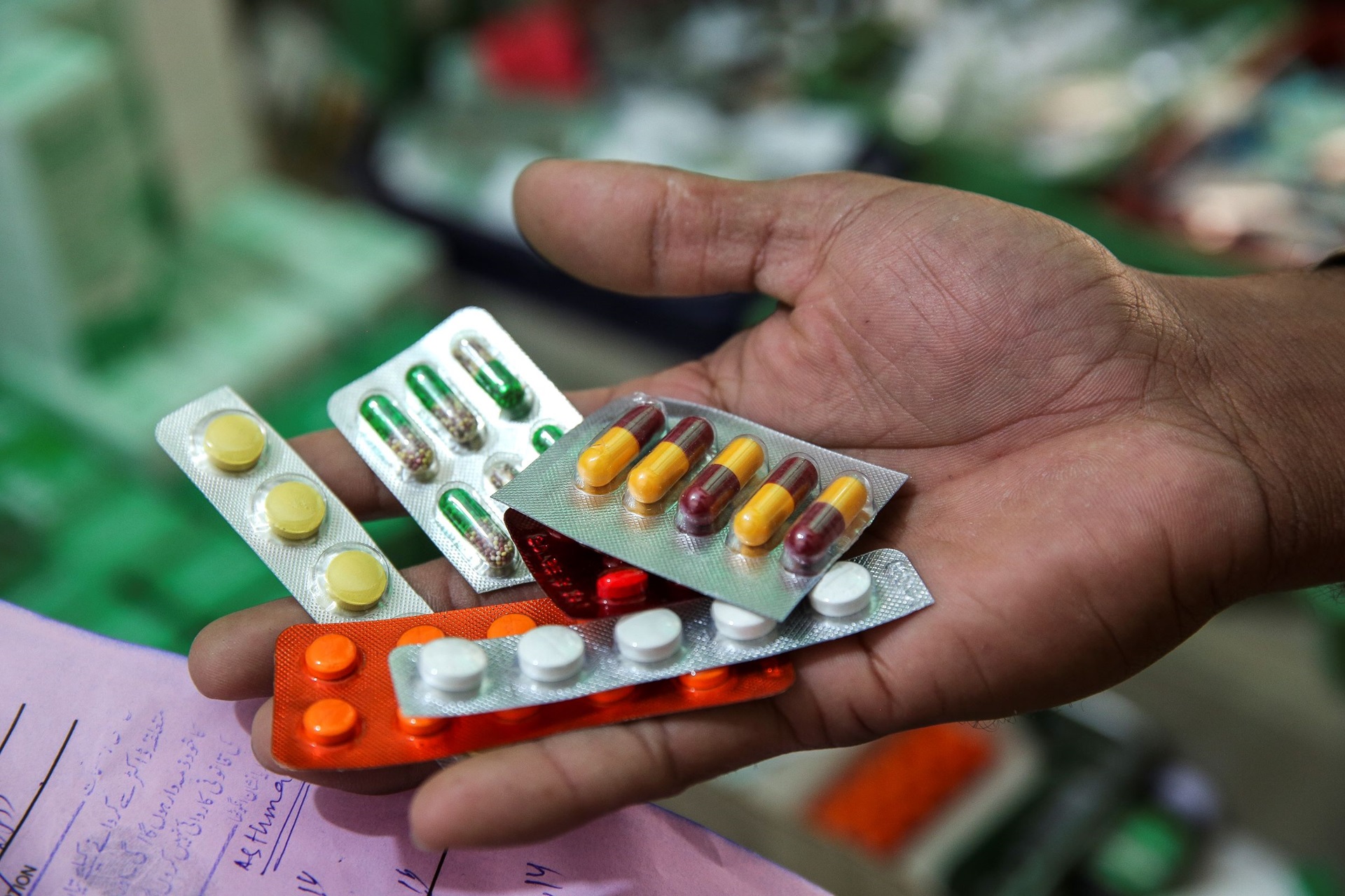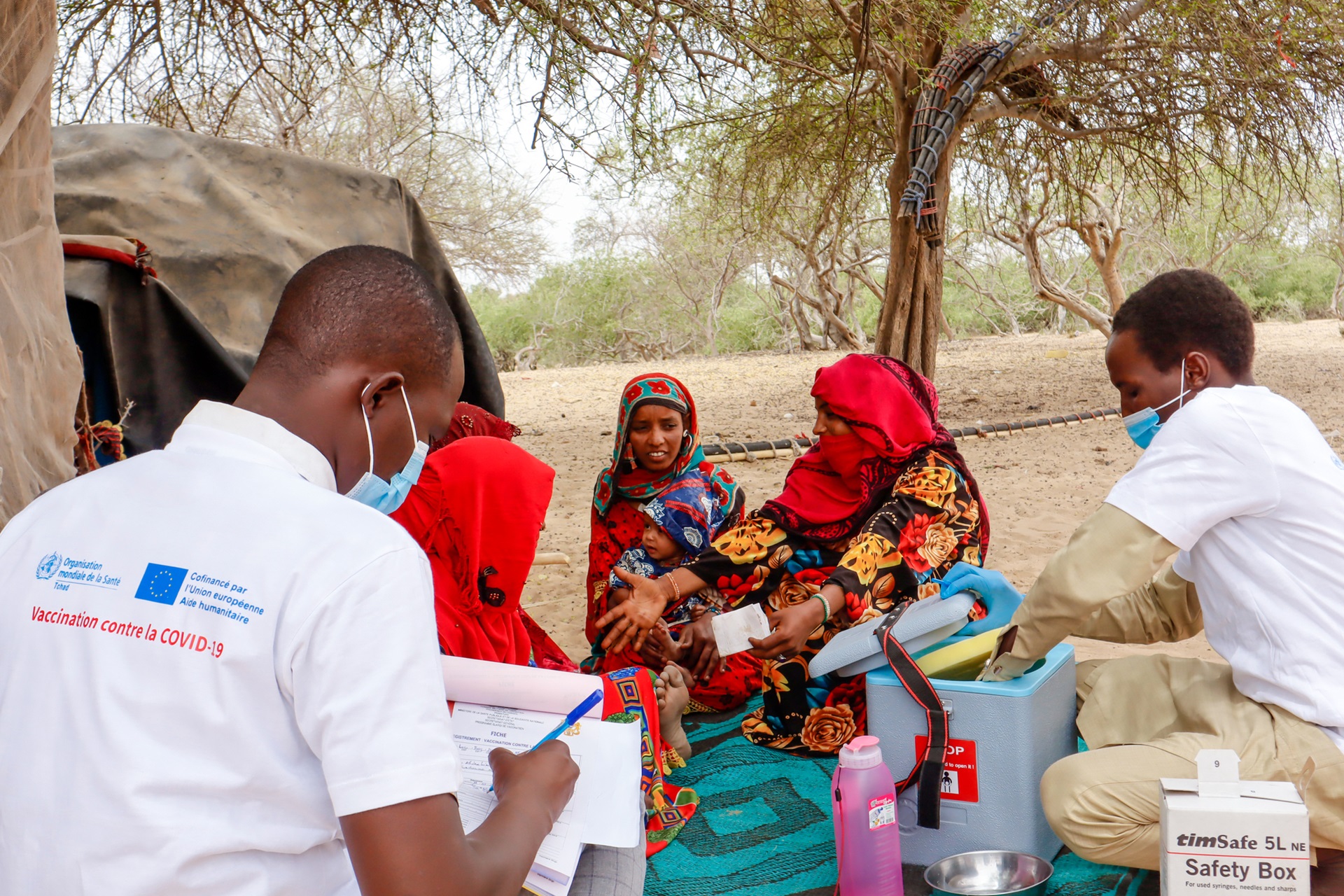
The European Union
Partner in global health
A strategic partnership with the EU for better health for all
The European Union (EU) plays a leading role in global health, shaping priorities through international fora, such as the G20 and G7. The EU provides critical financial support to health and related issues, including human development, climate change, crisis management and humanitarian assistance.
The EU's leading role in fighting the COVID-19 pandemic was an example of its contribution to global health goals with the Team Europe approach.
Team Europe is an initiative launched by the European Commission to combine the resources from the EU institutions, the EU Member States, and the European Investment Bank to support countries in the fight against the pandemic.
The EU - WHO partnership is long-lasting and strategic, supporting global health as well as countries across the world in their efforts to achieve the Sustainable Development Goal 3 on good health and well-being, and other SDGs’ health-related targets.
The partners share a promise to help bridge the gap between global commitments and impact in countries, strengthen health systems, achieve Universal Health Coverage (UHC) and improve capacities to prepare, prevent and respond to health emergencies. This strategic collaboration also enables countries to be better equipped to apply a One Health approach to global challenges such as antimicrobial resistance, address the health impact of climate change, improve sexual and reproductive health and keep at bay communicable and non-communicable diseases.


Dr Tedros and Mr Michel, president of the European Council, at a joint press conference in March 2021.
In the context of the EU Global Health Strategy, WHO and the EU aim to further enhance their cooperation by building on the lessons learned during the COVID-19 pandemic response. A stronger global health security architecture will be a solid foundation for a resilient, sustainable, and inclusive development.
COVID-19 pandemic response
Since the outbreak of COVID-19 in early 2020, the EU, EU Member States and European financial institutions, as Team Europe, have disbursed €47.7 billion in support of partner countries in addressing the pandemic and its consequences, delivering on its promises with concrete results. The EU and WHO have been working together to assist countries to stop the pandemic and mitigate its consequences. The EU contributed over US$ 270 million to WHO’s COVID-19 Strategic Preparedness and Response Plan. In addition, the EU played a critical role in the launch and success of WHO’s initiated ACT-A: the global cooperation platform Access to COVID-19 Tools – Accelerator. This resulted in the development and deployment of vaccines, tests and treatments against COVID-19 in record-time, as well as continued efforts to improve health systems. To date, the EU is a leading donor to COVAX – ACT-A’s vaccine pillar. – They have allocated US$ 1.2 Billion towards global, equitable access to COVID-19 vaccines, while exploring possibilities for boosting local manufacturing capacity. In total, Team Europe contributed close to US$ 7.5 billion to this initiative. The EU also supports the donation of vaccines by EU Member States to low- and middle-income countries through COVAX. |
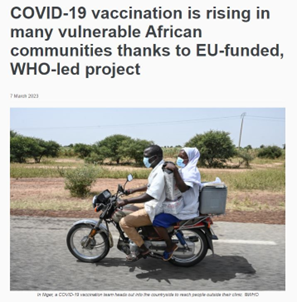
Global health security
WHO also works closely with the EU in strengthening global health security.
At the 74th session of the World Health Assembly (WHA), the EU and its Member States led efforts to promote a multilateral response to the pandemic and prepare better for future health emergencies. The resulting resolution strengthens WHO’s preparedness and response to health emergencies.
The EU played an active role in the WHA decision to kickstart the process to draft and negotiate a convention, accord or other international instrument under the WHO Constitution to strengthen pandemic prevention, preparedness and response.
The EU and WHO share an ambition to help build stronger pandemic preparedness and response across the world. Through the EU’s Health Emergency Preparedness and Response Authority (HERA), the EU and WHO initiated a new partnership with a € 15 million allocated under the EU4Health programme.
The partners work side-by-side to boost capacities at national, regional, and global levels for better preparedness and response to health emergencies by supporting:
- Epidemic and pandemic intelligence, access to and sharing of data and analytics;
- The development of new medical countermeasures for tackling antimicrobial resistance (AMR);
- The scaling up of national capacities for SARS-CoV-2 & Emerging Pathogens detection & genomic surveillance in Africa (€ 2 million); and
- The COVID-19 Technology Access Pool (C-TAP) to ensure the fastest, most coordinated, and successful global effort to develop and facilitate access to technologies to fight COVID-19 (€ 1 million).
Through these initiatives, HERA and WHO will strengthen global capacities to prepare, detect, prevent, and respond to cross-border health threats by providing information, capacities, and tools against health emergencies.
